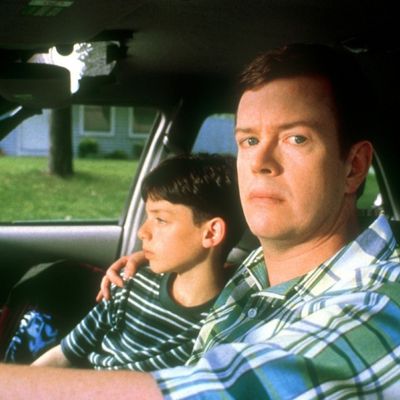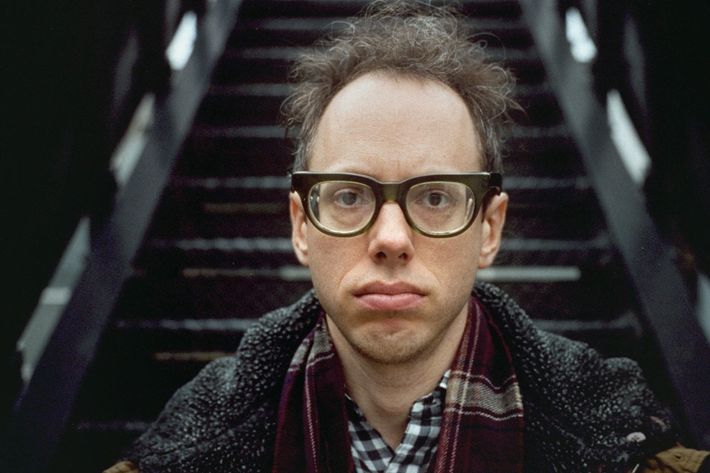
I could share a lot of stories about times when I felt vindicated in a particular critical opinion, of a TV show or film that I loved or hated in opposition to most of my peers. But I’d rather tell you about the time that I got it completely wrong about a movie — and admitted as much to the man who made it.
It was almost seven years ago. Todd Solondz, the director of such films as Welcome to the Dollhouse, Storytelling, and most recently, Weiner Dog, had just come out with Life During Wartime, a sort-of-sequel to his 1998 film Happiness, an acidic satire about unhappy suburbanites that cemented his reputation as a major American art-house auteur. I was one of the few New York Critics who was not entirely enthused by Dollhouse, his 1995 breakthrough, and I hated Happiness. Just hated it.
I found it facile, smug, repetitious, and said so in my review for the now-defunct New York Press. I definitely used the word “adolescent” and probably said a lot of worse things, although the review is no longer online and I didn’t save a clipping, so I can’t reliably say just how negative I was.
Strange thing, though: Life During Wartime floored me. It was one of my favorite films of its year, 2010, and so profoundly affecting that it forced me to go back through my reactions to all of Solondz’s films and second-guess them. This was especially vexing for me because Wartime was essentially chapter two of Happiness, albeit with new characters and an almost entirely new cast reprising roles from the original. And he was employing many of the same techniques, alternating a kind of sorrowful empathy with a satirical mercilessness that brushed up against outright cruelty. Okay, cruelty is too strong, though I might have accused Solondz of that in my Happiness review; you could certainly call him unsparing in the way that he showed people’s deluded self-images in order to puncture them.
I’d seen most, though not all, of Solondz’s films and the only one that made me almost violently reject it was Happiness. Maybe I couldn’t figure it out, or maybe I just didn’t want to go there.
Perplexed, I watched Happiness again 12 years after first reviewing it and thought it was amazing. Not just the scene with Dylan Baker trying to drug and molest that kid — maybe one of the most notorious examples of how a filmmaker can twist an audience’s identification since the heyday of Alfred Hitchcock — but the entire movie. It was funny, sad, sincere, ugly, tough, weird, occasionally horrifying. You could not watch it and feel nothing.
I had no idea why I panned it.

So, in 2010, when the manager of a cinema in Brooklyn called me to ask if I would moderate a Q&A with Solondz after a screening of Life During Wartime, I reluctantly agreed, only because he was a friend and the moderator they’d booked unexpectedly canceled at the last minute. I said, “I don’t know if you really want me doing this, I was mixed on Dollhouse and I was one of a handful of people who panned Happiness, so it could get uncomfortable.” He told me not to worry, that Solondz probably wouldn’t make the connection; it had been so long ago.
Well, he did make the connection, although he didn’t let on when we were introduced in the lobby prior to the screening. The manager introduced us both afterward, we went onstage and took our seats, I thanked him for being there and asked him a preliminary softball question — I can’t remember what it was — and he said, “I must say, I’m surprised that you agreed to do this. I thought you hated my movies.”
“Well, I loved this one,” I offered weakly. I’m paraphrasing here because it was so long ago, and because I have probably suppressed the exact details of the evening because it was so mortifying.
“You hated Happiness,” he said. He wasn’t sticking the shiv in me. He seemed genuinely bewildered and perhaps a bit hurt, still, after all this time. And curious. “You said it was adolescent. I think you said something about it having a high-school mentality?”
And here I had a choice: Lie to him or make up some evasive bullshit, or seriously ask myself why I hated that movie so much.
I blurted out — to my surprise, still — something like, “I think it was because I was in a very happy place at that moment. I’d just moved to New York a few years earlier, I had been married three years, I had two good jobs writing criticism, I had a nice little apartment and good friends, and my wife and I had just welcomed our daughter into the world less than a year before your movie came out. I think I would have to say that I had an allergic reaction to your movie because on some level it threatened me. It made me wonder if this was all a dream, if I didn’t really know what happiness was, or if it was all fragile and could be taken away at any second. In other words, I guess it wasn’t you, it was me.”
Usually when people say that, it’s a polite lie. But in this case, it was true.
We talked for about 15 minutes about the complicated, subjective, at times thorny relationship between artists and critics. Then we talked about Life During Wartime and his other movies. It was a great evening. He had a good time, I think. He was vindicated. But he was also enough of a gentleman not to rub it in.
